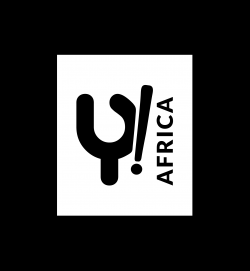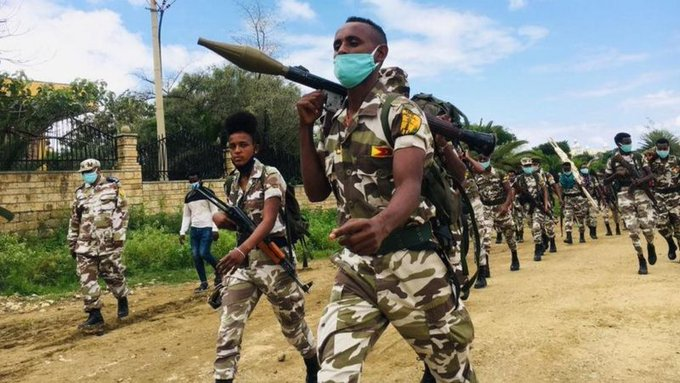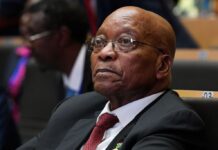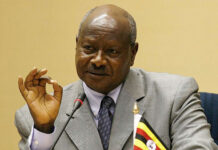The federal government in Ethiopia has vowed to continue a military offensive in the northern Tigray region despite international calls for restraint.
The row between the Tigray People’s Liberation Front (TPLF), once a dominant member of Ethiopia’s ruling coalition, and Prime Minister Abiy Ahmed’s government has been simmering for months, and came to the fore after a regional election was held defiance of the federal government.
Prime Minister Abiy ordered the military to mount an offensive against Tigray, after he said an attack on a federal army base that resulted in “many martyrs, injuries and property damage”.
He blamed the region’s ruling party, the Tigray People’s Liberation Front (TPLF).
What led to the tension?
September’s election in Tigray, which the federal government had postponed nationwide because of coronavirus, is widely considered to be the cause of the recent rapid deterioration.
But the tension has been building for longer.
The TPLF, which was the dominant political party in Ethiopia for decades, has been feuding with Mr Abiy’s government since shortly after he came to power in 2018.
Elected as a “reformist leader”, the prime minister accused officials in previous governments of corruption and human rights abuses, and removed key TPLF figures from the central government.
This included the former intelligence chief and senior TPLF official, Getachew Asefa, who evaded arrest and fled to Tigray, where he remains as a fugitive.
Mr Abiy’s decision last year to merge the ethnically based parties that formed the governing EPRDF coalition and set up the Prosperity Party (PP) added fuel to the tensions. The TPLF opposed the decision, saying it would divide the country, and refused to join the PP.
Earlier this year, the rift grew even wider after the federal government postponed nationwide elections.
Tigray’s decision to hold its own vote in September was an unprecedented act of defiance against the federal government. The federal parliament termed the process “illegal”.
Since then, both governments have designated each other as “illegitimate and unconstitutional”.
The TPLF had previously made veiled threats of secession, citing an article in the federal constitution which allows the “unconditional right to self-determination, including the right to secession”.
“We will never back down for anyone who is intending to suppress our hard-won right to self-determination and self-rule,” the region’s leader, Debretsion Gebremichael said in August.
Early in October, the federal government decided to cut ties with the Tigray region and the upper house of parliament voted to suspend budget aid to Tigray.
Why was the TPLF so significant?
Since the overthrow of Marxist leader Mengistu Haile Mariam in 1991 and up until 2018, the TPLF was the main partner in the governing coalition, as well as running Tigray itself.
The TPLF had played a pivotal role in Mengistu’s demise and went on to dominate not just the country’s politics but the economy as well.
Its disagreement with Mr Abiy represents a deep fracture in the very core of power in the country.
Most of the Tigray’s regional leaders, including Mr Debretsion, had served in the central government for long period of time.
Mr Debretsion, who is a veteran fighter, was at one time the deputy prime minister. His comrades and advisers also held key positions in the country until Mr Abiy came to power.
What does the TPLF want?
The Tigray’s administration sees Mr Abiy’s reforms as an attempt to build a unitary system of government destroying the current federal arrangement.
It also resents what it calls the prime minister’s “unprincipled” friendship with Eritrean President Isaias Afwerki.
Mr Abiy won the Nobel Peace Prize in 2019 for his efforts to bring peace with long-standing foe Eritrea. But the TPLF feels that Tigray’s interests have been overlooked and it wants to have more say over future relations with Ethiopia’s neighbour.
On his part, the prime minister believes the TPLF officials are undermining his authority.
Is Eritrea involved in the Tigray conflict?
There is a long-standing rift between the TPLF and the government in Eritrea, which shares a long border with the Tigray region.
The 1998-2000 Ethiopia-Eritrea war began over a dispute about territory along that border, particularly the area around the town of Badme.
The status of Badme remains unresolved but Eritrea wants Ethiopia to abide by a UN-backed border commission ruling to hand over the town.
But this cannot be achieved without the cooperation of the government in Tigray, as it administers the area.
Speaking about the attack on the federal army base, Mr Abiy’s office has accused the TPLF of dressing its soldiers in uniforms resembling those of the army of neighbouring Eritrea to “implicate the Eritrean government in false claims of aggression against the people of Tigray”.
While this allegation has not been independently verified, it will trigger concerns over how Eritrea will react to the crisis in Tigray, and whether it will get sucked into its larger neighbour’s internal affairs.
How likely is a full-scale war?
The Tigray regional leader has said they are ready to fight to defend the region, which would be “a burial place for the reactionaries”, calling on Tigrayans to understand the situation and make all the necessary preparations.
“We have prepared our army, our militia and our special force. Our preparation is aimed at averting war, but if we are to fight, we are ready to win,” Mr Debretsion said.
In justifying the military confrontation, Mr Abiy’s office has accused the TPLF of “continued provocation and incitement of violence” and said “the last red line had been crossed”.
There are risks with this level of rhetoric that the conflict in Tigray, if not amicably resolved, could easily blow up into something more serious, which could exacerbate tensions in the rest of the country.
Written By Desta Gebremedhin from BBC






